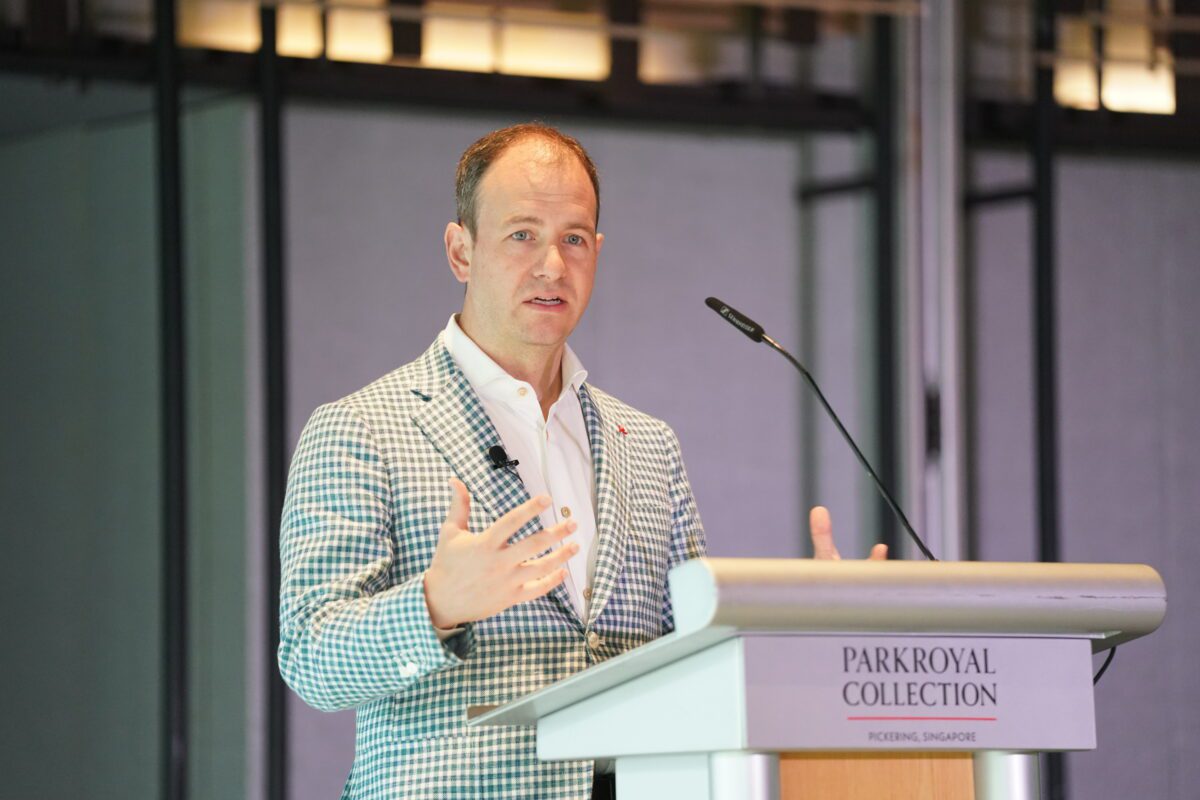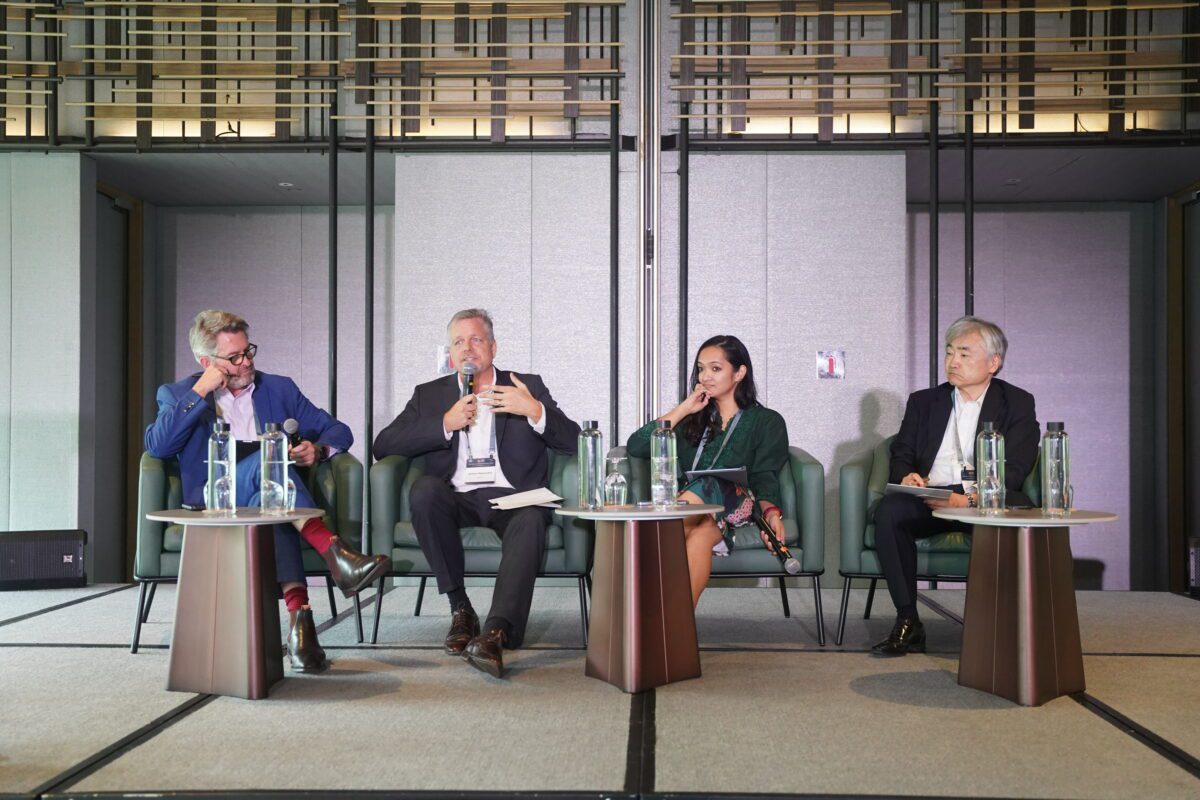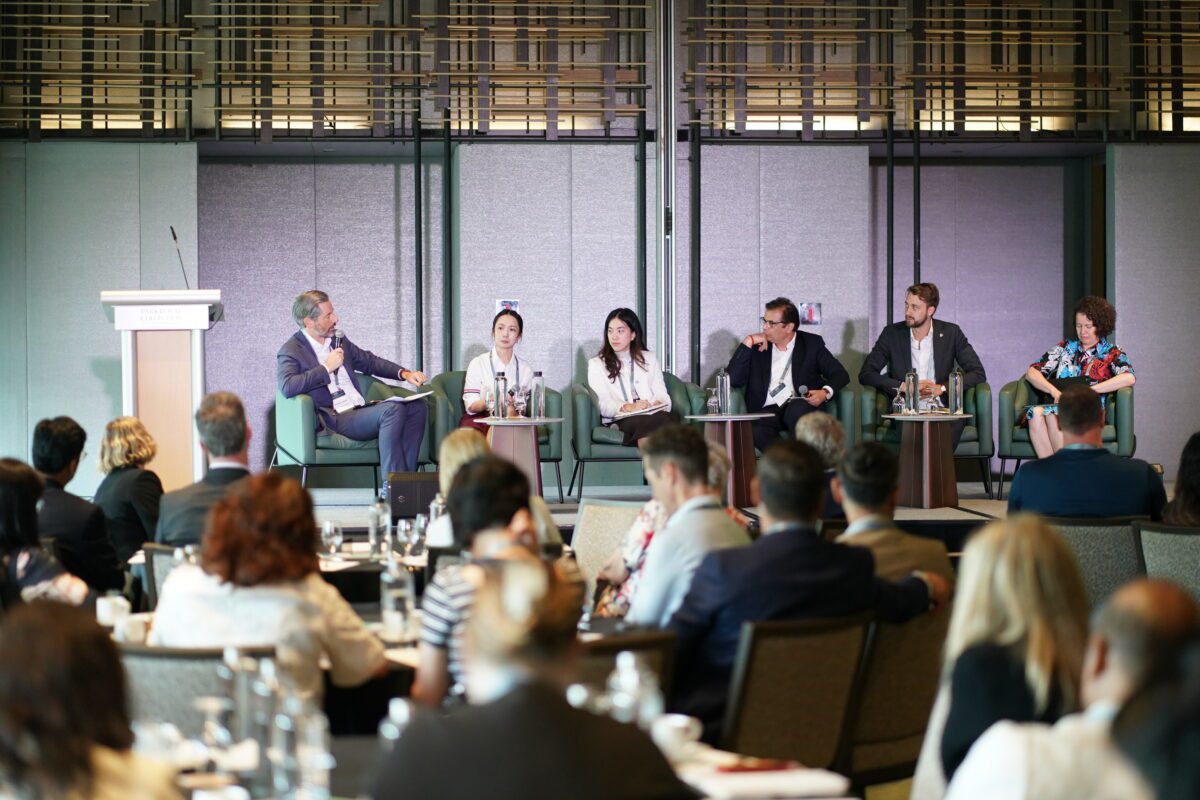Catalyzing the climate transition
Speaker: Katia Daude Goncalves, Country Manager, Brunei, Malaysia and Singapore, International Finance Corporation
Ladies and gentlemen, good morning.
I am Katia Daude Goncalves, IFC’s Country Manager for Brunei, Malaysia and Singapore, at the International Finance Corporation.
I would like to thank the Carbon Market Institute for the gracious invitation to deliver the Investor Keynote at this distinguished Carbon Market & Investor Forum in Singapore. It’s truly an honor to be part of this gathering of government representatives and investors from South East Asia and the broader Asia-Pacific region.
The energy transition is crucial for the Asia Pacific region, which is home to 4.7 billion people and accounts for three-fifths of global emissions from power generation. With the anticipated rapid growth, the region is projected to have the fastest increase in electricity consumption over the next decade. It is essential not only to supply more energy but also to reduce its carbon intensity significantly, as 85% of the region’s energy currently comes from fossil fuels.
Many countries in this region are particularly vulnerable to global warming, bearing the brunt of natural disasters that have affected over 1.6 billion people in the past two decades. Approximately 14% of Asia’s GDP is at risk from climate change, four times the global average. Extreme weather events in India and widespread forest fires in Indonesia and Thailand are causing numerous deaths.
At COP28, 117 countries committed to tripling the world’s renewable energy capacity and to doubling energy efficiency by 2030. Achieving this would prevent 7 billion tons of CO2 emissions between 2023 and 2030, equivalent to eliminating all CO2 emissions from China’s power sector.
Developing countries need between US$2 trillion and US$2.8 trillion per year by 2030 to transition to low-carbon economies and protect their populations from climate impacts. Currently, global climate finance amounts to about US$630 billion annually, with only a small fraction reaching developing nations.
Governments cannot finance this alone, especially with their fiscal constraints resulting from the impacts of COVID-19, Russia’s invasion of Ukraine, and other fiscal and monetary pressures affecting markets globally. Partnerships with the private sector are crucial for scaling climate investments. However, private investors often perceive investments in emerging markets as risky due to high upfront capital costs, lack of investment-ready projects, underdeveloped financial markets, local-currency risks and insufficient regulations.
The World Bank Group (WBG) plays a key role in bridging public and private sectors through its institutions: the World Bank (WB), the International Finance Corporation (IFC), and the Multilateral Investment Guarantee Agency (MIGA). The WB offers expertise in analytics and policy advice, the IFC focuses on private sector engagement and investment, and MIGA provides guarantees including coverage against political. Together, we create a powerful platform for addressing complex development challenges and fostering inclusive prosperity.
As part of the WBG’s mission to end poverty and promote a livable planet, IFC supports companies in emerging markets to access the capital needed for the climate transition. We are a leading financier of climate-smart projects in developing economies and have committed 85% of new projects to align with the Paris Agreement, aiming for 100% alignment by July 2025.
In fiscal year 2023, IFC committed a record US$14.4 billion in climate finance, of which we mobilized US$6.8 billion — twice the amount of the previous year — alongside our own US$7.6 billion investment to help client countries address the climate crisis. This investment contributed to approximately 11.5 million tons of CO2 equivalent reduction annually, across various sectors including financial institutions, renewables, green buildings, agribusiness, and industrial efficiency.
Since 2016, IFC has tripled its own-account climate finance from US$2 billion to US$7.6 billion and increased the volume of mobilized finance six-fold, from US$1.2 billion to US$6.8 billion.
In fiscal year 2023 alone, IFC’s climate commitments in EAP totaled just over US$1 billion, enhancing renewable energy access for over 8 million people in 2022 and 2023.
IFC has been at the forefront of climate finance, issuing 203 Green Bonds across 22 currencies since 2011. We have also supported companies in the issuance of other sustainability-related investment products, including sustainability-linked bonds and even blue finance. In 2020, IFC launched its first blue loan, valued at $300 million, to support recycling operations and reduce marine pollution for a major global plastics resin manufacturer. Building on this, we developed Blue Finance and Biodiversity Finance guidelines and have since invested over $1.4 billion in the ocean economy.
Other examples include:
- Viet Nam: In September 2023, IFC invested approximately US$150 million in Viet Nam’s first local currency SLBs, issued by BIM Land Joint Stock Company and its subsidiary Thanh Xuan Joint Stock Company. This investment allows the developers to improve water conservation and energy efficiency in their hospitality assets, potentially avoiding 4,000 metric tons of CO2 annually – equivalent to greenhouse gas emissions from 890 gasoline powered passenger vehicles driven for a year.
- Singapore: In January 2024, IFC committed US$15 million to Clime Capital’s Southeast Asia Clean Energy Fund II (SEACEF II), focusing on clean energy and climate transition projects. SEACEF II will be the first fund to integrate public, private and philanthropic capital with a specialized focus on Southeast Asia. The fund will invest equity in utility-scale solar, wind and energy storage, in addition to helping businesses go to scale in areas ranging from rooftop solar, energy efficiency, electric mobility and grid management.
IFC also supports local and international investors in developing countries through de-risking instruments and tools, such as:
- MCPP One Planet: A US$3 billion global portfolio of private loans mobilized to support emerging-market borrowers that are 100% aligned to the Paris Agreement;
- EDGE Certification: An innovative green building certification tool which has certified over 8,455 projects in 96 countries, saving more than 1.3m tons of CO2 annually.
- Blended Finance: To attract more private capital and develop innovative financial platforms.
Australia is a leading advocate for climate action, aiming to reduce greenhouse-gas emissions by 43% below 2005 levels by 2030 and has proposed co-hosting COP31 in 2026 with Pacific countries. Over the past decade, IFC has maintained a US$2.1 billion investment portfolio with Australian partners across various sectors and regions. Notably, in November 2022, IFC issued its first green bond in the Australian dollar market, raising AU$900 million for climate-friendly projects. This five-year green bond, the largest Australian dollar-denominated issuance by multilateral development banks in 2022, funds investments in clean energy, energy-efficient buildings, transport, green banking, agriculture, and climate adaptation in developing economies.
Australia is also a key development partner for IFC’s programs in the Asia-Pacific region, supporting 11 regional and country-level private sector partnerships. These include recent collaborations in Bangladesh, Fiji, Timor Leste, and Viet Nam, with a focus on climate, gender, and inclusion.
To address climate change, we must mobilize private sector financing and innovation. Success depends on engaging all sectors of society, particularly women, whose added skills and leadership are vital for driving sustainable development. Key priorities include:
- Enabling the growth of sustainable finance initiatives, including green, blue, and transition finance, to attract private-sector investments in climate-related projects;
- Supporting the growth of energy and resource efficiency in manufacturing, agribusiness, and health care – along with greening and improving the resilience of the real-estate and
property sectors and promoting circular economy projects; and - Facilitating the energy transition to renewable sources of energy, while also reducing the energy-access deficit and supporting the rollout of proven climate technologies.
Attracting significant capital to emerging market climate projects is achievable with the right enabling environment and competitive processes. The private sector has a critical role to play in addressing climate change by investing in low-carbon technologies, creating jobs and skills, and building climate resilience into its investments and operations.
At the World Bank Group, we are committed to advancing climate efforts and to partner with investors to explore opportunities for sustainable growth and collaboration in this dynamic economy.
Thank you.




